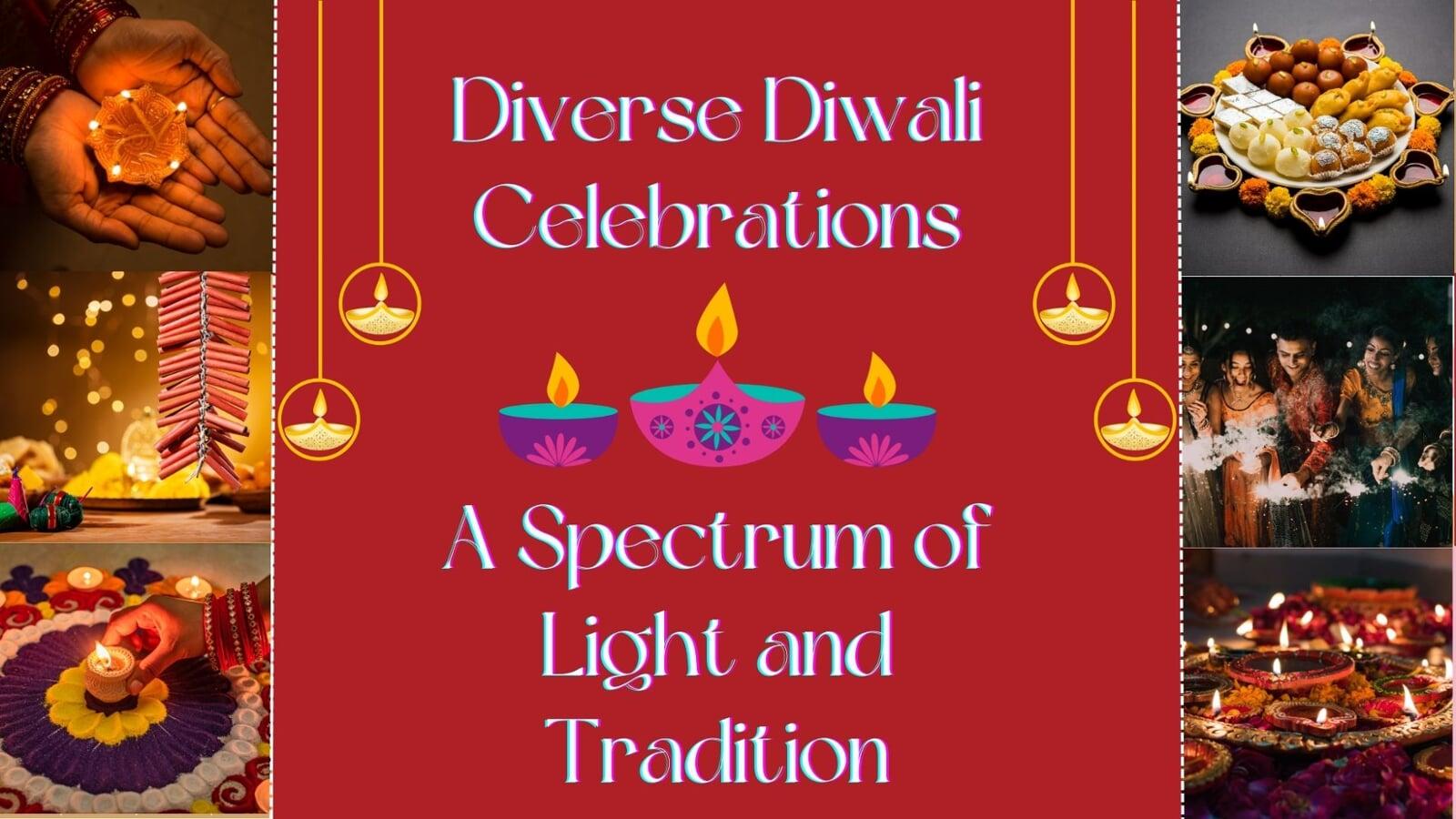
Diwali, also known as Deepavali, is one of the most widely celebrated festivals in India and among Indian communities worldwide. This vibrant festival, which typically falls in October or November, signifies the victory of light over darkness and good over evil.
Homes are adorned with oil lamps and colorful decorations, creating a mesmerizing atmosphere. Families come together to exchange gifts, share festive meals, and burst firecrackers, filling the night sky with dazzling displays. At the heart of Diwali is the worship of deities, with prayers offered to Goddess Lakshmi for prosperity and wealth. Temples are beautifully illuminated, and the air is filled with devotional songs.
North India: In the northern regions, Diwali is associated with the return of Lord Rama to Ayodhya after defeating the demon king Ravana. People light oil lamps, burst fireworks, and decorate their homes with colorful rangoli designs. Families come together to perform a puja (prayer) and exchange gifts.
South India: In the southern states, Diwali is marked by lighting oil lamps, bursting firecrackers, and preparing delicious sweets and snacks. People pay homage to the goddess Lakshmi, the bringer of wealth and prosperity.
West India: In Maharashtra, Diwali starts with Vasu Baras, where cows are worshiped. The second day, known as Dhanteras, involves the purchase of gold or silver items. On the third day, Naraka Chaturdashi, an oil bath is taken before dawn. The fourth day is the main Diwali festival, celebrated with new clothes, delicious food, and a display of lamps and firecrackers.
East India: In the eastern states, particularly in Bengal, Diwali coincides with the worship of Goddess Kali. It's a time for grand processions, cultural performances, and lighting clay lamps.
Jain and Sikh Communities: Diwali also holds great significance for the Jain and Sikh communities. Jains celebrate it to commemorate Lord Mahavira's attainment of nirvana, while Sikhs celebrate Bandi Chhor Divas, which marks the release of Guru Hargobind Ji from imprisonment
One of the most iconic customs is the creation of rangoli, intricate and colorful patterns made with colored powders or flower petals, outside homes to welcome guests. Diwali is also a time for feasting on delicious sweets and snacks, with a variety of traditional treats on offer. But beyond the celebrations, Diwali carries a deeper message - the triumph of inner light over spiritual darkness. It's a time for self-reflection, forgiveness, and renewal.
In essence, Diwali is a festival that unites India in its diversity. It signifies the victory of light over darkness, good over evil, and the triumph of knowledge and hope. Regardless of the region or tradition, the essence of Diwali remains the same – a celebration of joy, unity, and the eternal light within us all.
